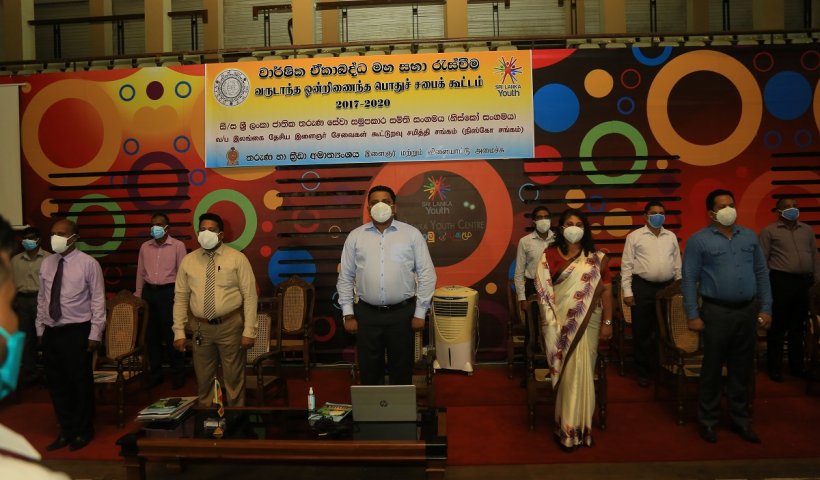

Sri Lanka National Youth Services Co-operative Society (NYSCO) was registered on 1981.01.01 under the Co-operative Act No.05 of 1972. Having commenced operations centralized in the environs of Colombo it became decentralized from 1986.01.01 expanding to all districts in Sri Lanka with a membership of 25 co-operatives.
The primary objective of the setting up of this institution was to provide an opportunity to school leavers and unemployed youth to engage in a gainful activity through the provision of the necessary training, required capital and other services. Achieving this primary objective, today the membership has expanded to over 5 lakhs youth participants. Of this about 10 % have successfully improved their economic situation and business through the they have received.
"To be a pioneering institution which will pave the way to build-up an ‘entrepreneur culture’ by minimizing the economic instability of the youth community in the country".
"To develop the network of youth co-operatives, qualitatively, quantitatively and sustainably in order to render utmost productivity and efficient services to the young entrepreneurs, implementing various initiative projects, through a well-informed staff with their knowledge, attitude and skills.
Registration was done with the Department Co-operative Development under the Co-operative Act No.05 of 1972.
The decentralization of 25 co-operative societies under the umbrella of The Sri Lanka National Youth Services Co-operative Society was the beginning of the co-operative movement.
The Board of Directors consists of a maximum of 15 members 9 of who are chosen through a democratic voting process from the 9 districts. The other 6 members are nominated by the Commissioner of Co-operative Development. These six nominated directors must be persons engaged in youth activities within government departments, ministries and constitutional boards. The office of the Board of Directors is situated within the National Youth Services Council premises.
| 01. | National: | Sri Lanka National Youth Services Co-operative Society Ltd. |
| 02. | District: | District Youth Services Co-operative Societies A Board of Directors at District Level is elected from a general assembly consisting of all regional committee nominees and representatives, |
| 03. | Regional – Regional Committees | While there are provincial general assemblies made up of members from the area, elected members make up a Board. The Secretary of this board is automatically the Officer in charge of Youth Services in the province. |
| 04. | Rural :- Members / Rural organizations | These are rural units made up of members of one or more Grama Niladhari divisions. |